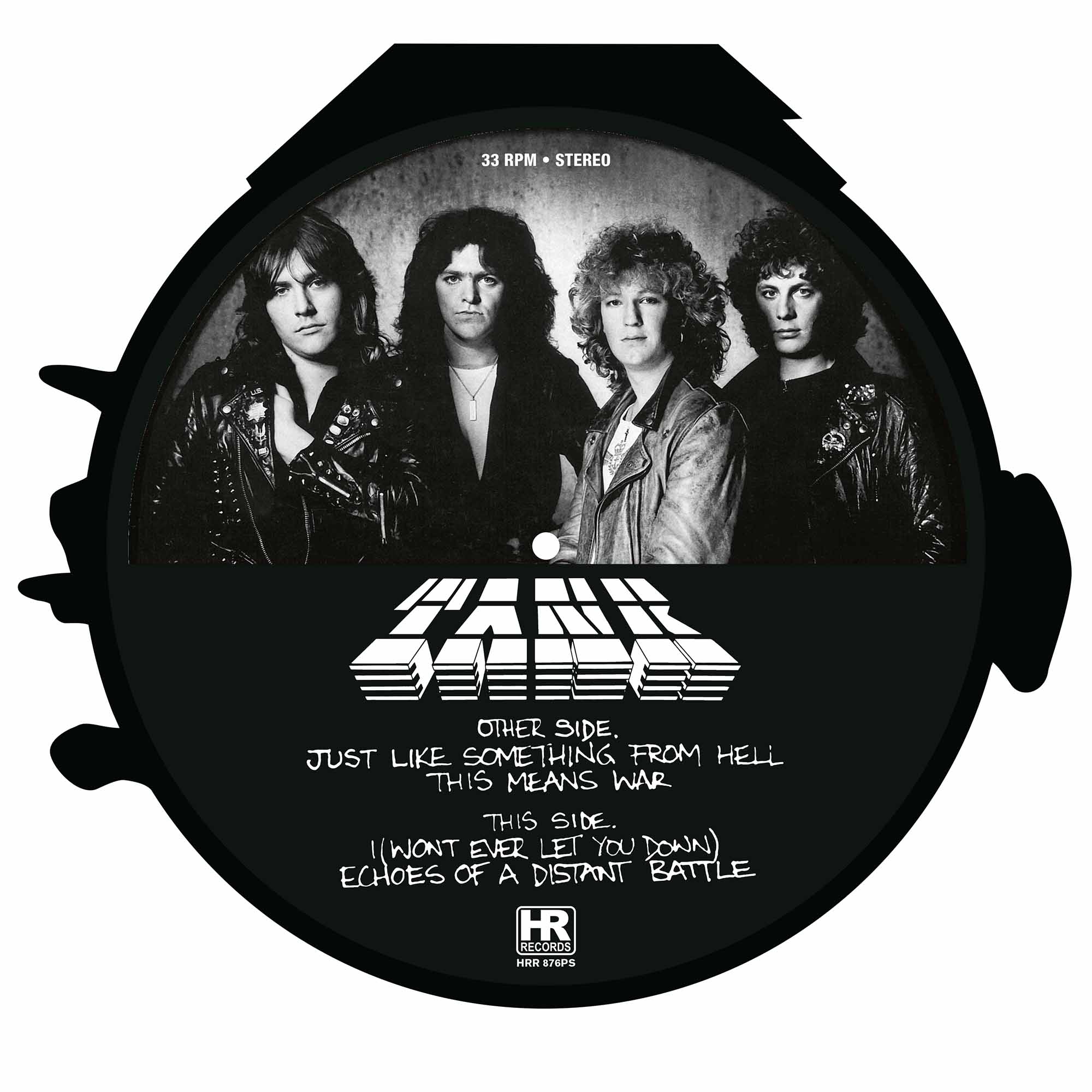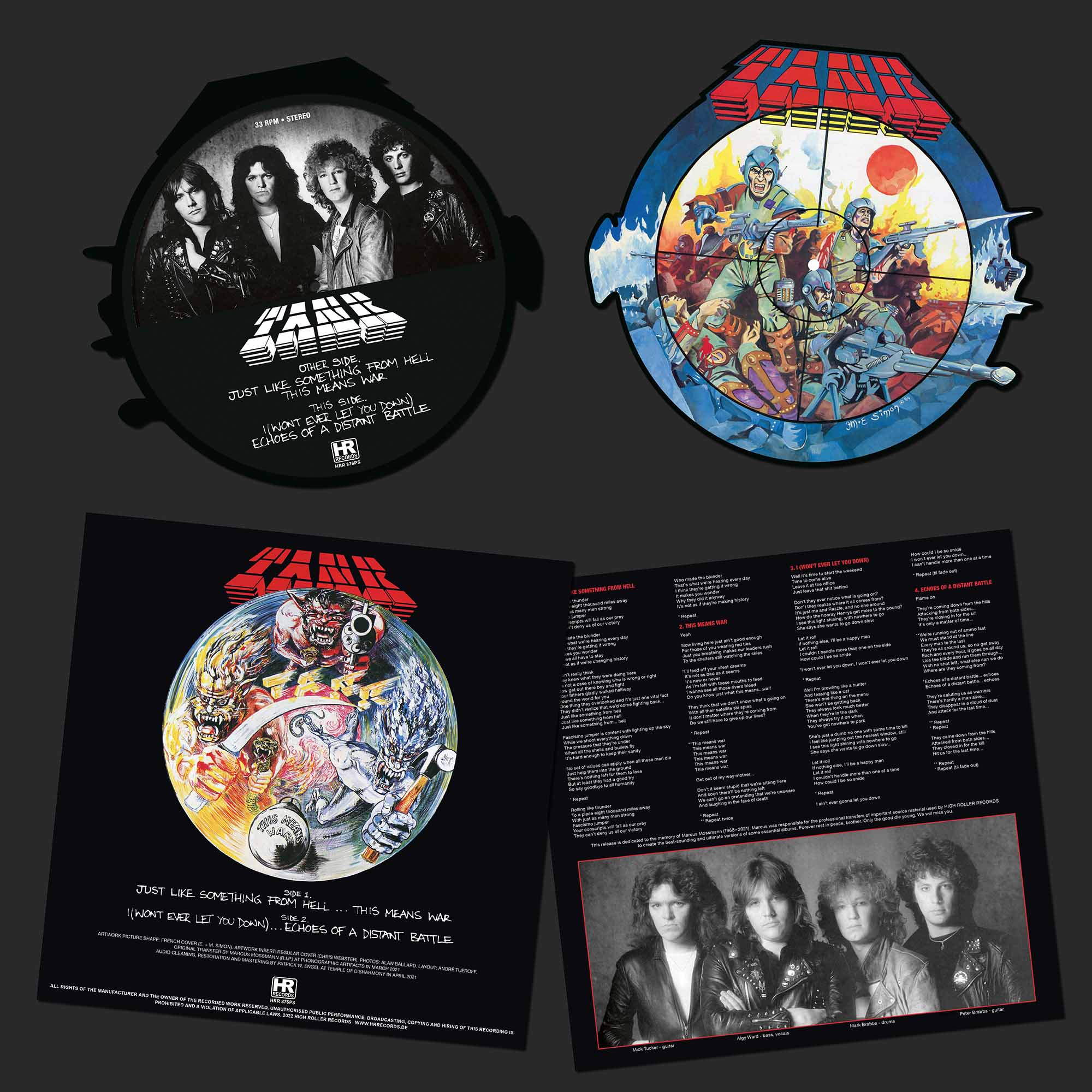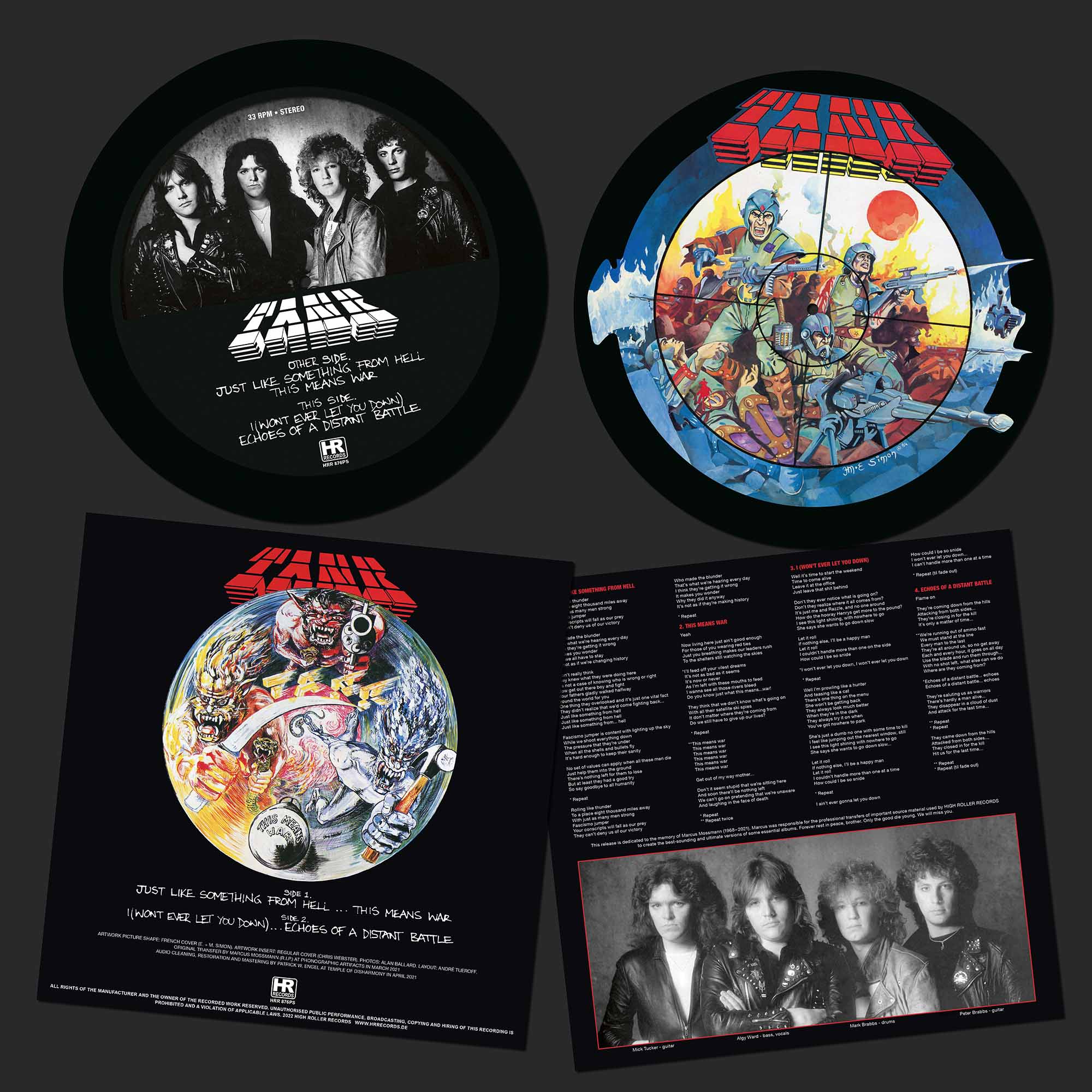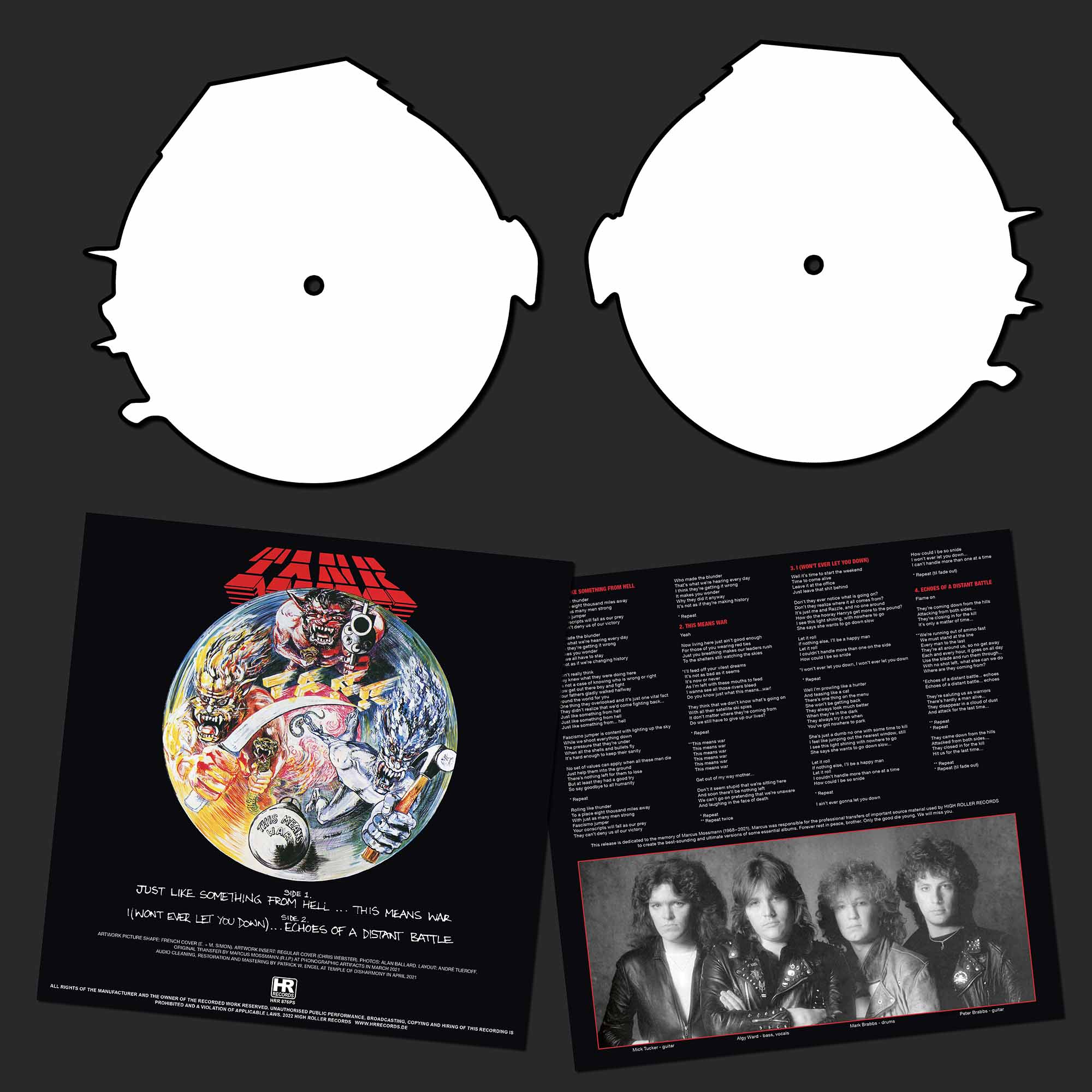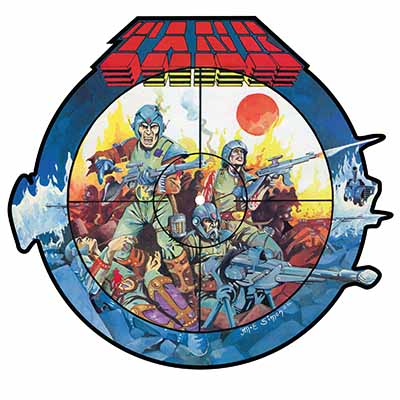 | ||||
| TANK - This Means War PICTURE SHAPE | |
HRR 876PS, ltd 500, insert, deluxe plastic bag | |
| Algy Ward - Bass, Lead Vocals Mick Tucker - Guitar Peter Brabbs - Guitar Mark Brabbs - Drums | |
| 01 Just like Something from Hell 02 This Means War 03 I (Won't Ever Let You Down) 04 Echoes of a Distant Battle / Swapiyayo | |
AVAILABLE | |
After two very successful albums for Kamaflage in 1982, »Filth Hounds Of Hades« and »Power Of The Hunter«, Tank issued their third longplayer on the newly founded Music For Nations label. 1983’s »This Means War« came across more polished than its two predecessors, and some to this day think that it’s the best album the band has ever recorded. The songwriting itself was a bit more refined and a few compositions even featured keyboards.
“The album was certainly different,” observes drummer Mark Brabbs today. “But it still sounds like us. Mick Tucker joined the band as an additional guitarist because we wanted to get even more powerful and aggressive live. Whenever we went into a lead solo, we wanted a heavy backing. But we didn’t realize that Mick was such a prolific songwriter. You know, when he came in, as well as learning the old stuff, when we thought about recording, he was coming up with some great riffs, and they worked well with Algy’s ferocious style of riffing. Mick’s a bit more … how can I say? His solos are rehearsed. If I talk about the solos ... When we wrote songs, we would just be in the studio jamming, have a few beers, come back and then we go: ‘Well, that sounds good, let’s do that.’ And then we go through it and Algy would put a vocal on. Mick would come into the studio with a song fully written. And then we would tear into it and make it our own, rather than just his. His soloing is always similar. He’d do a solo and when we play live, his solo will be exactly the same as in the studio. So if he’d do six takes to get the solo right, all six takes would be more or less identical. Whereas Pete’s style of playing was very much on the spot. He would play like whatever he feels. He’d do a solo and go no, that’s shit, and he’d do another one. And it would be completely different. And then he’d do a third solo and again it would be completely different. And I think this difference comes across on the album. It’s a little bit more precise because of Mick. There’s no jamming on it, nothing is spontaneous, regarding the playing or the songwriting. Whereas before the three of us were very spontaneous. And I think this comes from the Deep Purple influence. None of their concerts is the same. When we’d be gigging as a three-piece, our solos would be either five times longer or shorter, it all depends on how you feel. With Mick everything was always the same. That was it. That’s the record and that’s how it is gonna be played. I am not saying that’s wrong but that’s probably why that record doesn’t sound as spontaneous as the first two. It sounds a lot more precise, rehearsed and practised. But it still has attitude, I think this comes across but ... it’s a good album, I like it.”
And what about the English press back then, did they also get it? Or did they compare it to »Filth Hounds Of Hades« and »Power Of The Hunter«?
“The only place where we didn’t get any good press was England,” laughs the Tank drummer, “our home country, where we were born. But they actually warmed to »This Means War« because it was different. You couldn’t possibly say that it was influenced by Motörhead, which they seemed to always wanna say. When the album came out, they expected to slag it off but they actually really liked it, the press, basically all over the world.”
»This Means War« came out on Music For Nations, so had Kamaflage gone bust by this time? “No, they were still part of the DJM conglomerate,” explains Mark Brabbs, “but I think they gave up on it. They just didn’t ... they really only wanted to sign Tank when they formed the label. But when they started to sign other bands, they didn’t do much. Bernie Tormé was great but he only got popular after he joined Gillan, not with his own band. His own band didn’t make it, although they were superb, I have seen them live a couple of times. I think DJM just wanted to wind up that particular project. DJM felt that was just enough and went straight back to their middle of the road catalogue.”
MATTHIAS MADER
